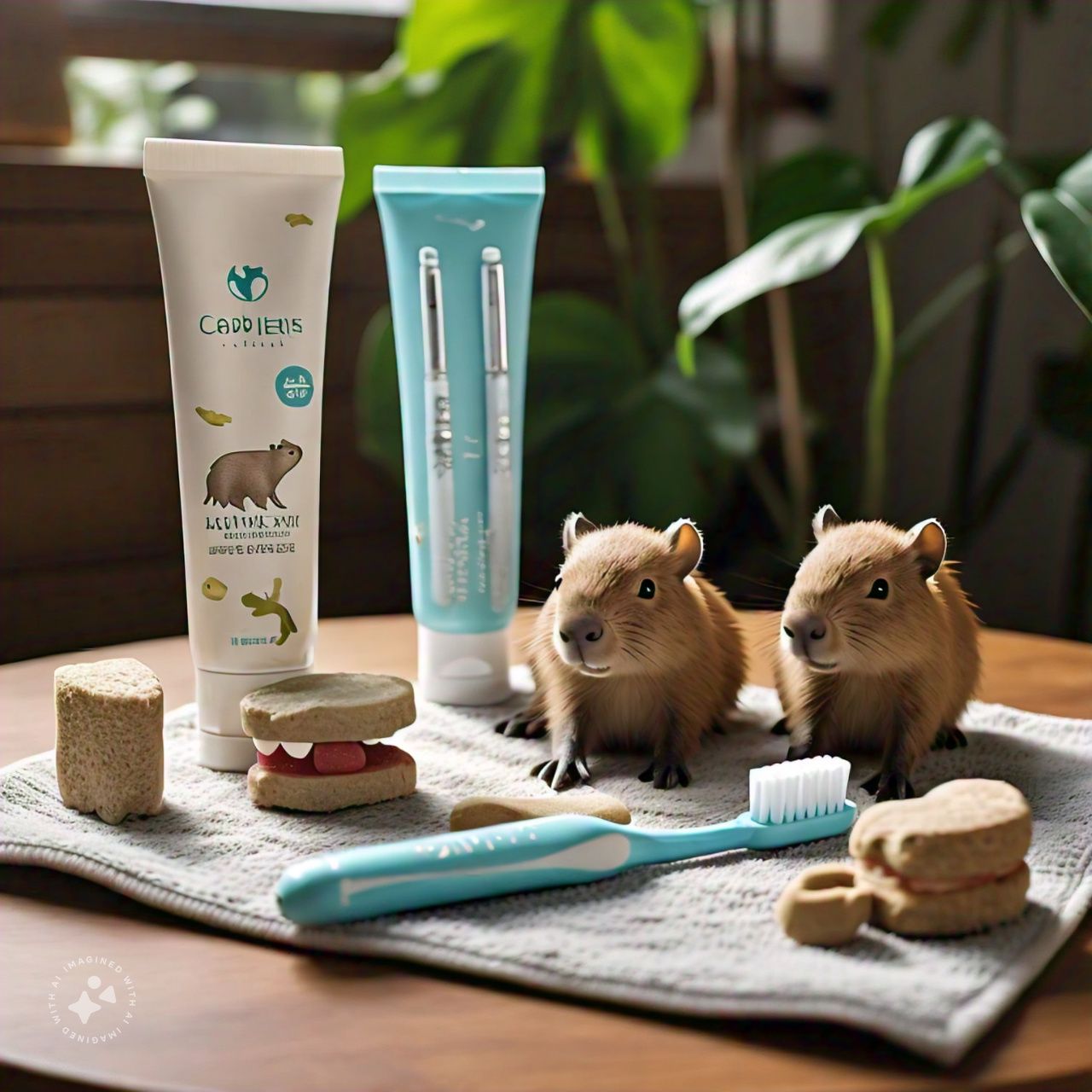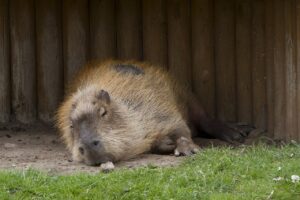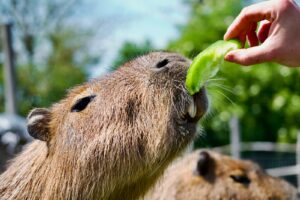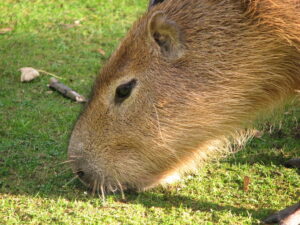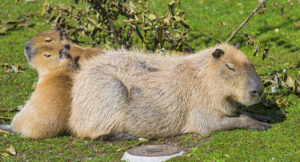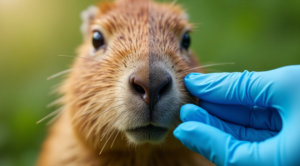Maintaining proper dental care for your capybara is vital for their overall well-being. As the largest rodent species, capybaras have unique dental needs that must be addressed to prevent serious health issues. Their teeth grow continuously, so neglecting dental care can result in overgrown teeth, infections, and discomfort. In this article, we’ll outline a step-by-step routine to ensure your capybara has optimal oral health, from brushing to diet, and highlight essential dental products.
1. Brushing Your Capybara’s Teeth
Brushing your capybara’s teeth is the cornerstone of their dental care routine. Just like humans, capybaras are susceptible to plaque and tartar buildup, which can lead to gum disease and tooth decay. Follow these steps to keep their teeth clean:
- Get the right tools: Use a soft-bristled toothbrush and capybara-safe toothpaste. Human toothpaste contains chemicals that can harm capybaras, so always opt for pet-specific products.
- Introduce brushing gradually: Start by letting your capybara sniff and get used to the toothbrush. Once they’re comfortable, begin gently brushing their teeth in circular motions, focusing on the outer surfaces and molars. Patience is key—some capybaras may take time to get used to this new routine.
- Frequency: Ideally, brush your capybara’s teeth daily, but at the very least, aim for several times a week.

2. Providing a Dental-Healthy Diet
A balanced diet is essential for capybara dental health. Their natural diet consists of fibrous plants, which help grind their teeth down as they chew. Ensure your capybara is getting plenty of the following:
- Hay and grasses: These provide natural roughage that helps wear down their continuously growing teeth.
- Vegetables: Leafy greens and crunchy veggies like carrots and celery not only provide nutrients but also aid in cleaning their teeth.
- Avoid sugary treats: Sugar can contribute to dental decay. Stick to natural, fibrous foods that promote oral health.
3. Scheduling Regular Veterinary Check-Ups
Capybaras, like all pets, need regular veterinary check-ups, especially to monitor dental health. Exotic animal vets are skilled at identifying issues like cavities, gum disease, or overgrown teeth before they become severe. Here’s what to expect:
- Professional teeth cleanings: If your vet spots plaque buildup or dental disease, they may recommend a professional cleaning under anesthesia.
- Routine check-ups: Regular visits every six months can help detect potential dental issues early, saving your capybara from pain and expensive treatments later on.
4. Using Dental Care Products
There are additional products that can enhance your capybara’s dental health, reducing the risk of plaque and tooth overgrowth.
- Dental chews: These are specifically designed to help capybaras clean their teeth as they chew. They mimic the texture of fibrous plant materials that capybaras would gnaw on in the wild.
- Dental wipes: For those times when you can’t brush, dental wipes can be used to clean your capybara’s teeth and gums gently. They’re especially useful between brushings.
- Chew toys: Wooden branches or chew toys made from safe materials help your capybara wear down their teeth naturally.

5. Preventing Dental Diseases
Preventing dental diseases involves a combination of good hygiene practices and the right diet. The biggest threat to capybaras’ oral health is the overgrowth of their teeth. Here are some best practices:
- Keep chew toys available: Wooden toys and other hard items help capybaras maintain their teeth length.
- Monitor eating habits: If you notice your capybara is drooling excessively, struggling to chew, or showing signs of discomfort, it might indicate a dental problem. Consult a vet immediately.
6. Homemade Dental Treats for Capybaras
Creating homemade treats can be both nutritious and beneficial for dental health. Here are two easy recipes:
- Carrot and Apple Chews: Slice carrots and apples into thin strips. The crunchy texture of the carrot helps wear down teeth, while the apple offers a sweet reward.
- Celery and Parsley Mix: Celery is naturally fibrous and helps clean teeth, while parsley provides vitamins and minerals. Cut these into strips for a refreshing treat that doubles as a dental aid.
Conclusion
Caring for your capybara’s teeth is an essential part of ensuring their long-term health and happiness. By incorporating regular brushing, offering a fibrous diet, scheduling veterinary check-ups, and using specialized dental products, you can prevent painful dental diseases and keep your capybara’s teeth in top shape. With these simple steps, you’ll help your capybara enjoy a long life with a healthy smile.
FAQs:
What signs indicate dental problems in capybaras? Difficulty eating, drooling, bad breath, or noticeable changes in chewing behavior can all signal dental issues. Seek veterinary care if you notice any of these symptoms.
How often should I brush my capybara’s teeth? Ideally, daily brushing is recommended. However, if that’s not possible, aim for at least three times a week.
Can I use human toothpaste for my capybara? No, human toothpaste contains ingredients that can harm capybaras. Always use toothpaste formulated for pets.
